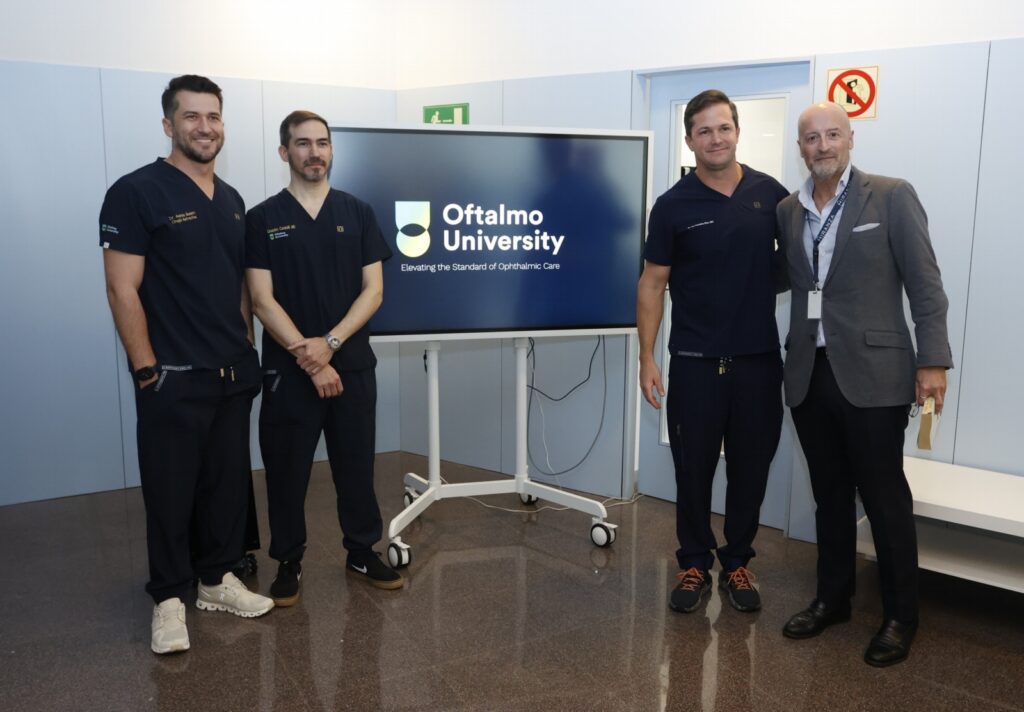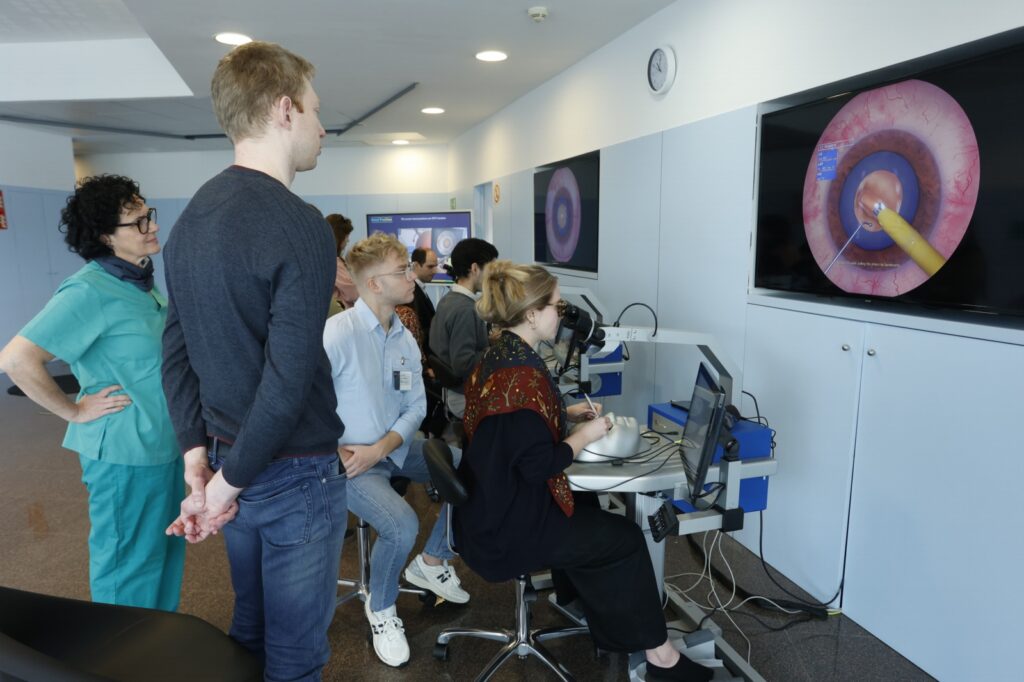
Ophthalmic surgical training takes a major leap into the future with cutting-edge virtual reality simulators
Oftalmo University, in collaboration with IMO Grupo Miranza, has launched an advanced surgical training program that allows ophthalmologists to refine their skills using state-of-the-art technology.
Ophthalmic surgery is entering a new era of training through the integration of cutting-edge virtual reality simulators. Committed to excellence and educational innovation, Oftalmo University – a global institution dedicated to training surgeons at the highest level – has partnered with IMO Grupo Miranza to introduce a surgical training program that enables ophthalmologists to enhance their skills in a safe and controlled environment.
The training programs at Oftalmo University – OU Campus Europe – are developed in the operating rooms of IMO Grupo Miranza in Barcelona, with support from the experimental surgery Wet Lab. These programs feature three Eyesi virtual reality simulators from Hagg-Streit Simulation, regarded as the world’s most advanced tools for teaching eye surgery.
Thanks to this technology, professionals can practice essential procedures, from cataract surgery to complex cornea, retina, and refractive surgeries, all without the need for biological material. Another key advantage of the simulators is their ability to offer unlimited practice of surgical techniques and the resolution of complications, optimizing the learning curve.
A fusion of technological innovation and clinical expertise
The training, designed for both residents and experienced surgeons seeking to improve or update their techniques, is tailored to meet the needs of professionals at any stage in their careers. The structure of the program combines an initial online phase, lasting three to four weeks, followed by an intensive hands-on phase where participants work with the simulators for two weeks. This flexible teaching model allows ophthalmologists from across Europe to access top-tier training without disrupting their clinical responsibilities.
According to Ramón Berra, CEO of Miranza, this initiative is “a commitment to high-quality ophthalmic surgical training, offering programs designed to provide surgeons with the most advanced and effective tools to refine their techniques. We already have students from Germany, Poland, and Austria, as well as mentors from Poland, Portugal, and Spain.”
Lisandro Carnielli, Director of the OU Europe Campus, adds, “Just as airplane pilots train with simulators before taking control of a commercial aircraft, ophthalmic surgeons now have the tools to achieve the same level of preparation before performing real surgeries on human patients.”

Surgical training programs by specialty
The training initiative includes programs in a variety of specialties, such as the Cataract Academy Program, designed for ophthalmologists at all levels who want to become surgeons or elevate their surgical skills; Advanced Cataract, aimed at basic or intermediate-level surgeons; Complication Management, Iris Suturing, Anterior Vitrectomy, and more; Premium Cataract, focused on surgeons looking to implant Premium IOLs (toric and multifocal); Retina Academy Program, for ophthalmologists who wish to specialize in retinal surgery; and Refractive Surgery, designed for those interested in refractive surgery. Additional programs are available for different audiences, including Cataract Surgery for Veterinarians, Training Programs for Optometrists, and Basic Ophthalmology Training for companies in the ophthalmic industry.
This combination of cutting-edge technology and clinical expertise positions this program as a milestone in ophthalmic surgical training, with the potential to transform how surgeons are prepared and ultimately improve the quality of care provided to patients.